Pruritus and Itching
While anyone can experience pruritus, it is more commonly seen among the elderly, people with diabetes, individuals with suppressed immune systems, and those with seasonal allergies, such as hay fever or eczema. Additionally, a type of pruritus known as PUPPP (Pruritic Urticarial Papules & Plaques of Pregnancy) specifically affects pregnant women.
Our trusted providers at Lupton Dermatology specialize in diagnosing and managing pruritus, offering personalized care and advanced treatments to alleviate symptoms and address the root cause. If you're seeking relief from persistent itching, schedule an appointment for a comprehensive evaluation and tailored treatment plan to restore your skin's health and overall well-being. Learn more about pruritus below and take the first step towards comfort and healthier skin today.
Examples of Pruritus and Itching
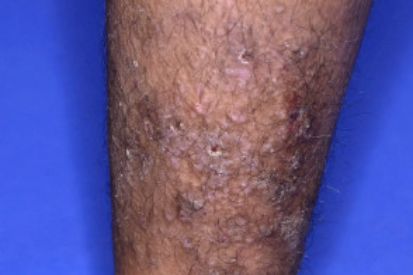
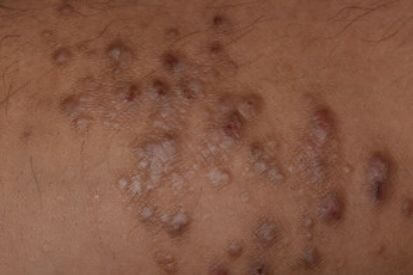
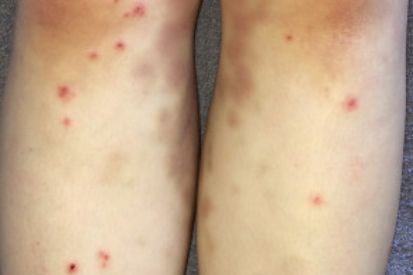
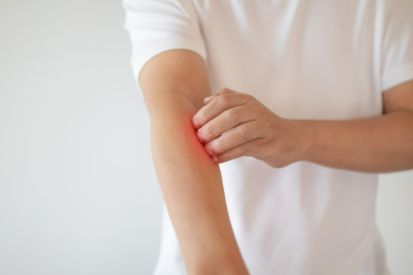
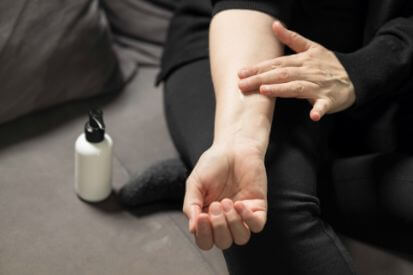
Symptoms of Pruritus?
Pruritus, commonly referred to as chronic itching, can present with a range of skin-related symptoms that vary in intensity and duration. While itching is the hallmark, it's often accompanied by other visible or sensory changes that signal underlying issues. Recognizing these symptoms can help guide proper diagnosis and treatment. Common symptoms of pruritus may include:
- An itch that is difficult to resist scratching
- Redness or inflammation of the skin
- Visible rash or bumps
- Dry, flaky, or cracked skin
- Thickened or leathery skin from repeated scratching (lichenification)
- Burning or stinging sensations
- Temporary relief after scratching, followed by a return of symptoms
Causes of Pruritus
Chronic itching may be caused by dry skin, allergies, infections, or skin conditions. In some cases, it may point to underlying issues like liver or kidney disease, thyroid disorders, or even cancer.
People with diabetes, weakened immune systems, or Pruritic Urticarial Papules and Plaques of Pregnancy (PUPPP) may be more at risk. If you’re experiencing ongoing pruritus and itching, Pinnacle Dermatology can help identify the cause and offer effective treatment.
Some common causes of pruritus include:
- Skin conditions like dry skin (xerosis), eczema (dermatitis), psoriasis, and contact dermatitis
- Allergic reactions
- Infections like fungal infections and bacterial infections
- Systemic diseases such as liver disease, kidney disease, and thyroid disorder
- Hormonal changes such as pregnancy and menopause
- Neurological conditions
- Drug reactions
- Insect bites
How to Prevent Pruritus
Keeping your skin healthy is one of the best ways to prevent pruritus and chronic itching. Simple daily habits can go a long way in protecting your skin from irritation and minimizing your risk of developing this uncomfortable condition. Tips to help prevent this condition include:
- Hydrating Your Skin: Moisturize regularly to prevent dryness.
- Being Skin-Savvy: Use gentle cleansers and choose skin-friendly, fragrance-free products.
- Avoiding Allergens and Irritants: Identify and avoid triggers that can cause flare-ups.
- Making Healthy Lifestyle Choices: Stay hydrated, eat well, and manage stress.
- Practicing Sun Protection: Use sunscreen and limit prolonged sun exposure.
Pruritus FAQs
Pruritus is just a fancy word for itching. It can happen for various reasons, like dry skin, allergies, or certain medical conditions. Your body is basically telling you that something is irritating your skin.
Occasional itching is normal, but if it's persistent or affecting your daily life, it's worth looking into. Your body might be reacting to something, and finding the cause can help you manage it better.
For mild itching, you can try over-the-counter creams and keep your skin moisturized. If it persists or gets worse, it's a good idea to see a doctor or dermatologist. They can pinpoint the cause and suggest the right treatment.
Yes, some products with fragrances or harsh chemicals can worsen itching. Choosing gentle, fragrance-free soaps and moisturizers can help soothe your skin. Your dermatologist can recommend products that are less likely to cause irritation.
Absolutely. Stress can have all sorts of effects on the body, including making your skin itch. Finding ways to manage stress, like exercise or relaxation techniques, might help alleviate itching.
How to Treat Pruritus
Treating pruritus starts with identifying the underlying cause. A dermatologist will examine the skin and may perform tests, such as a skin scraping or blood work, to determine whether the itching is due to a skin condition, allergy, or an internal issue.
At Pinnacle Dermatology, our specialists offer personalized treatment plans that may include topical steroids, oral antihistamines, or medications targeting nerve-related itch. We also provide guidance on skincare routines and lifestyle adjustments to help manage symptoms and prevent flare-ups, so you can find lasting relief and get back to feeling comfortable in your skin.
Featured Products for Pruritis
Check your local office for current stock!
Check your local office for current stock!
